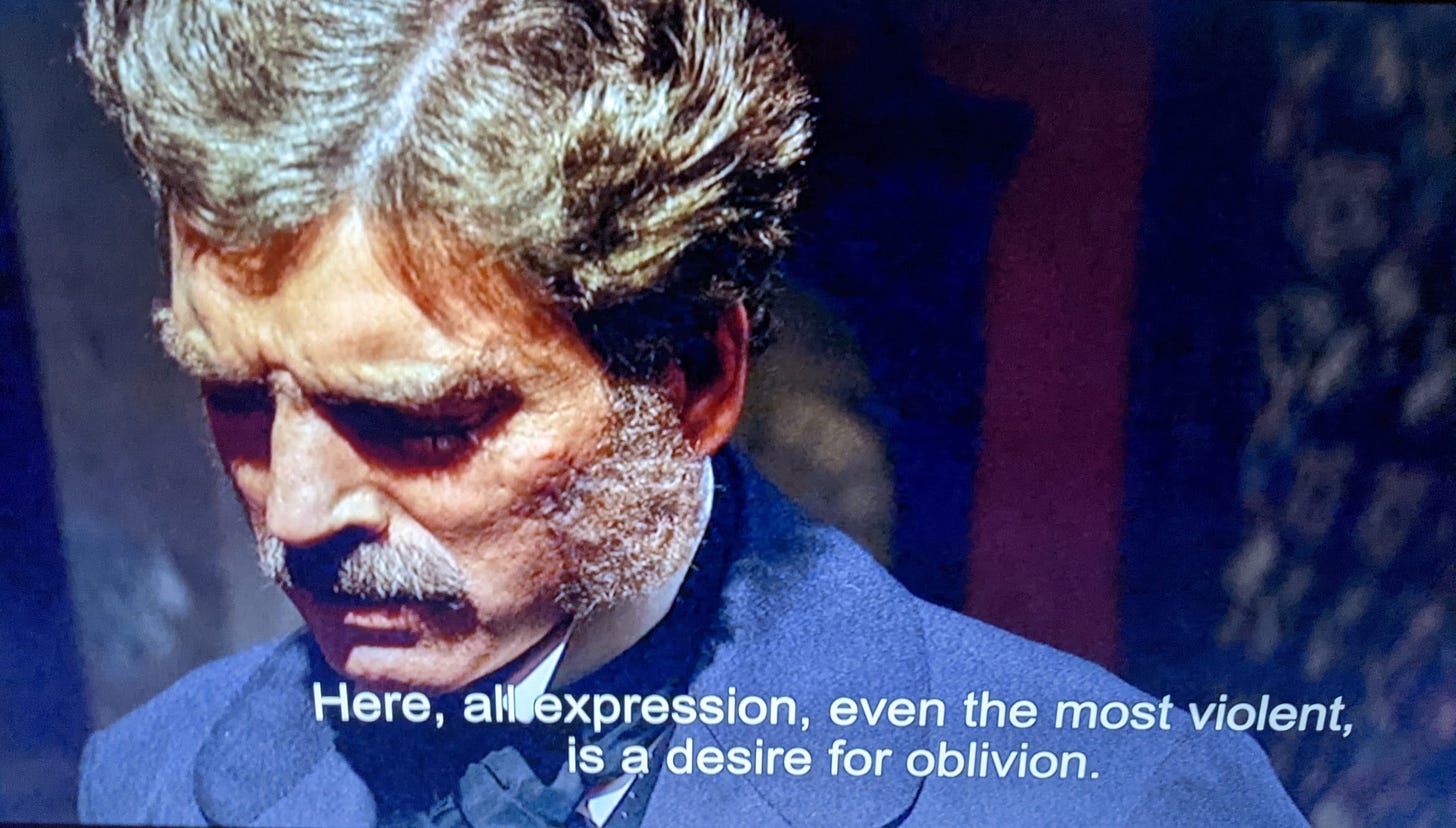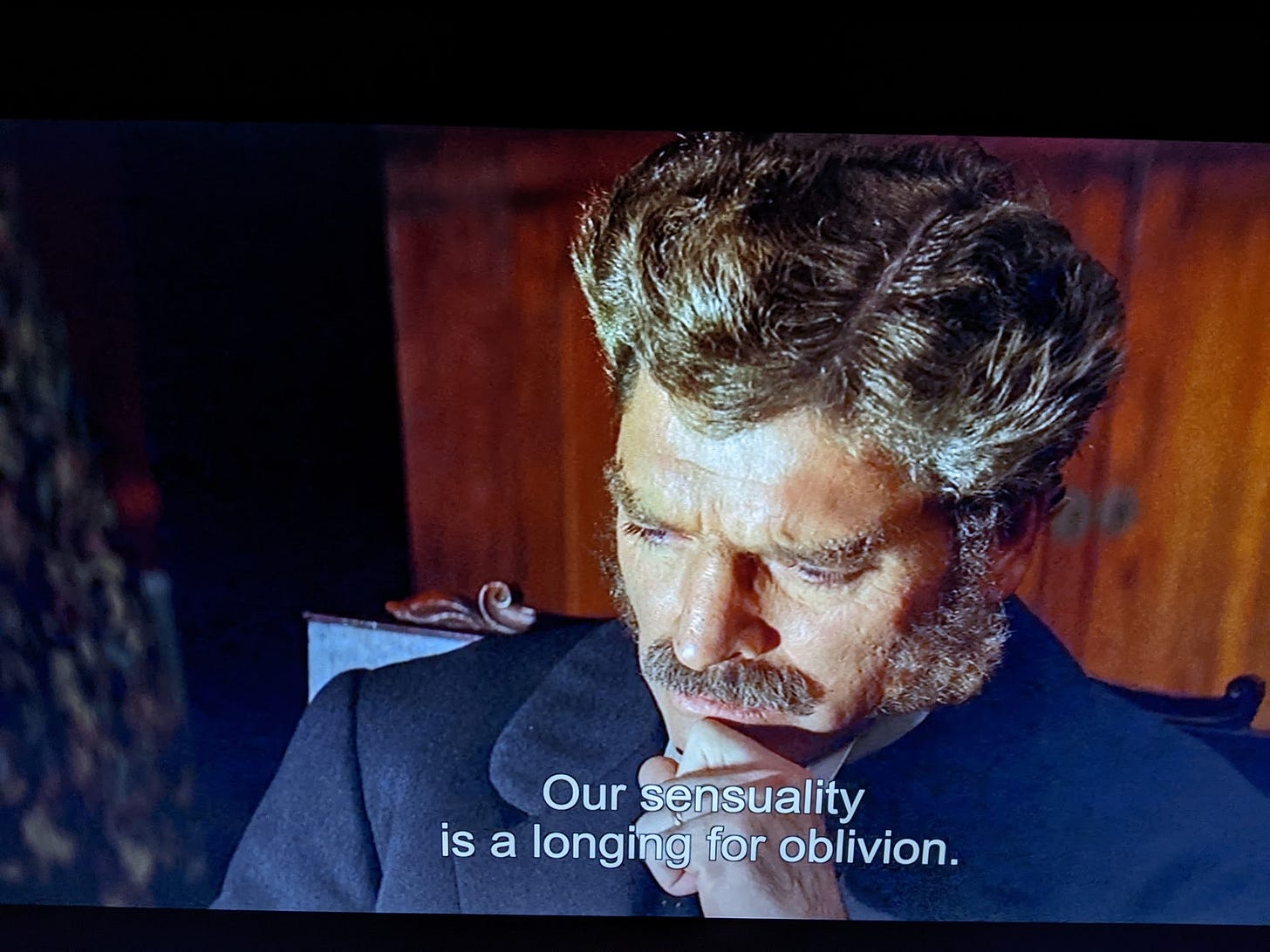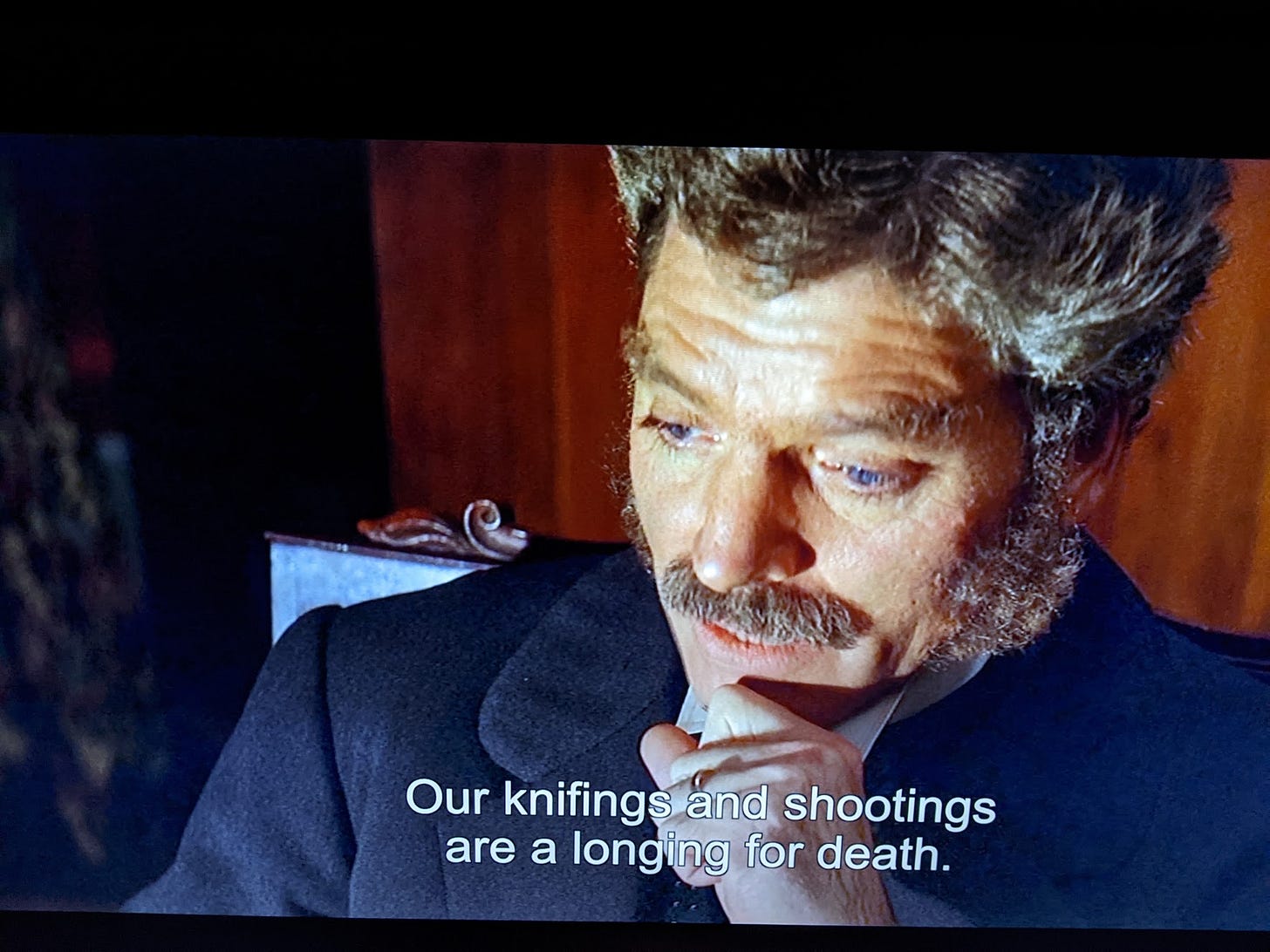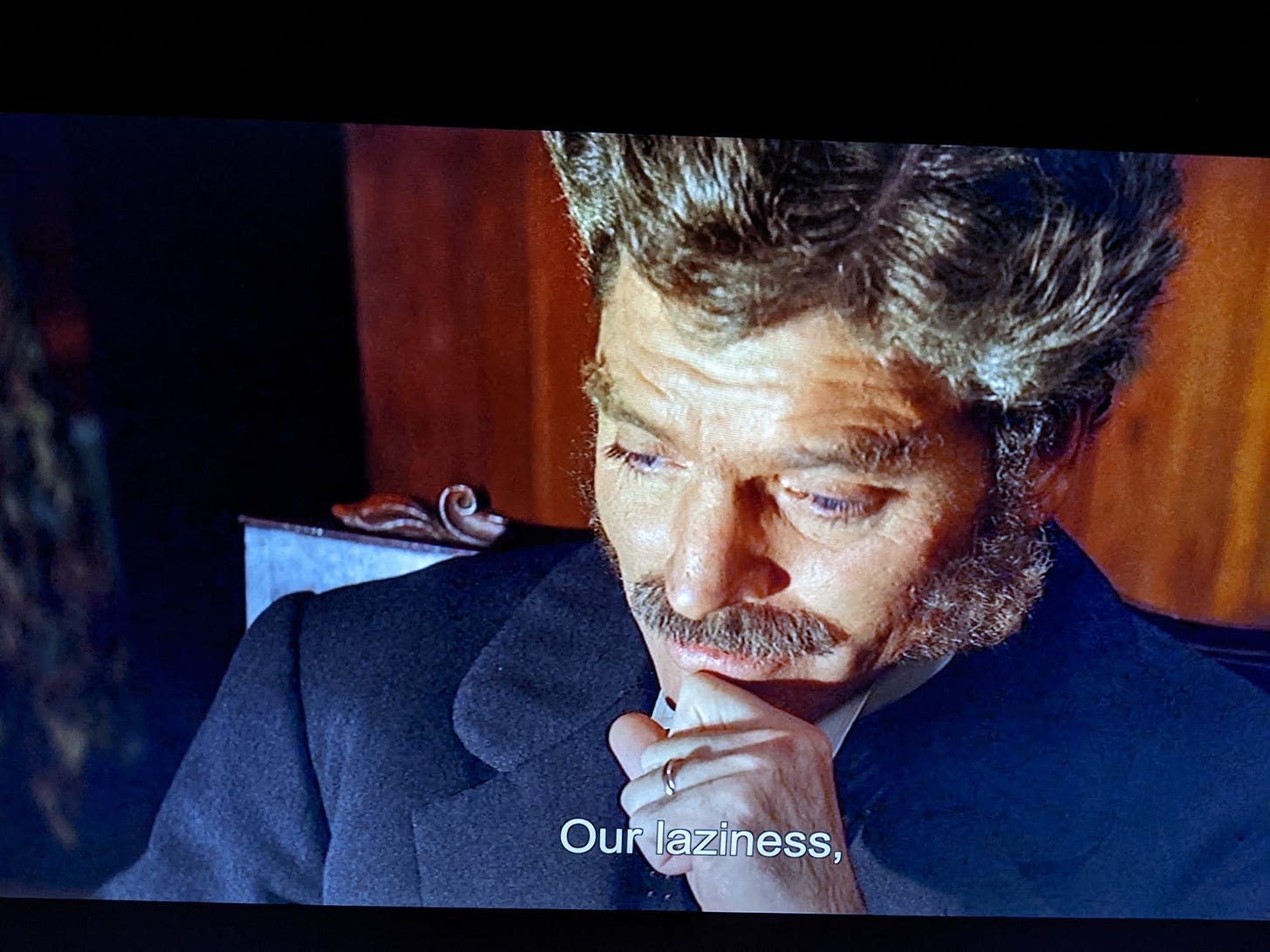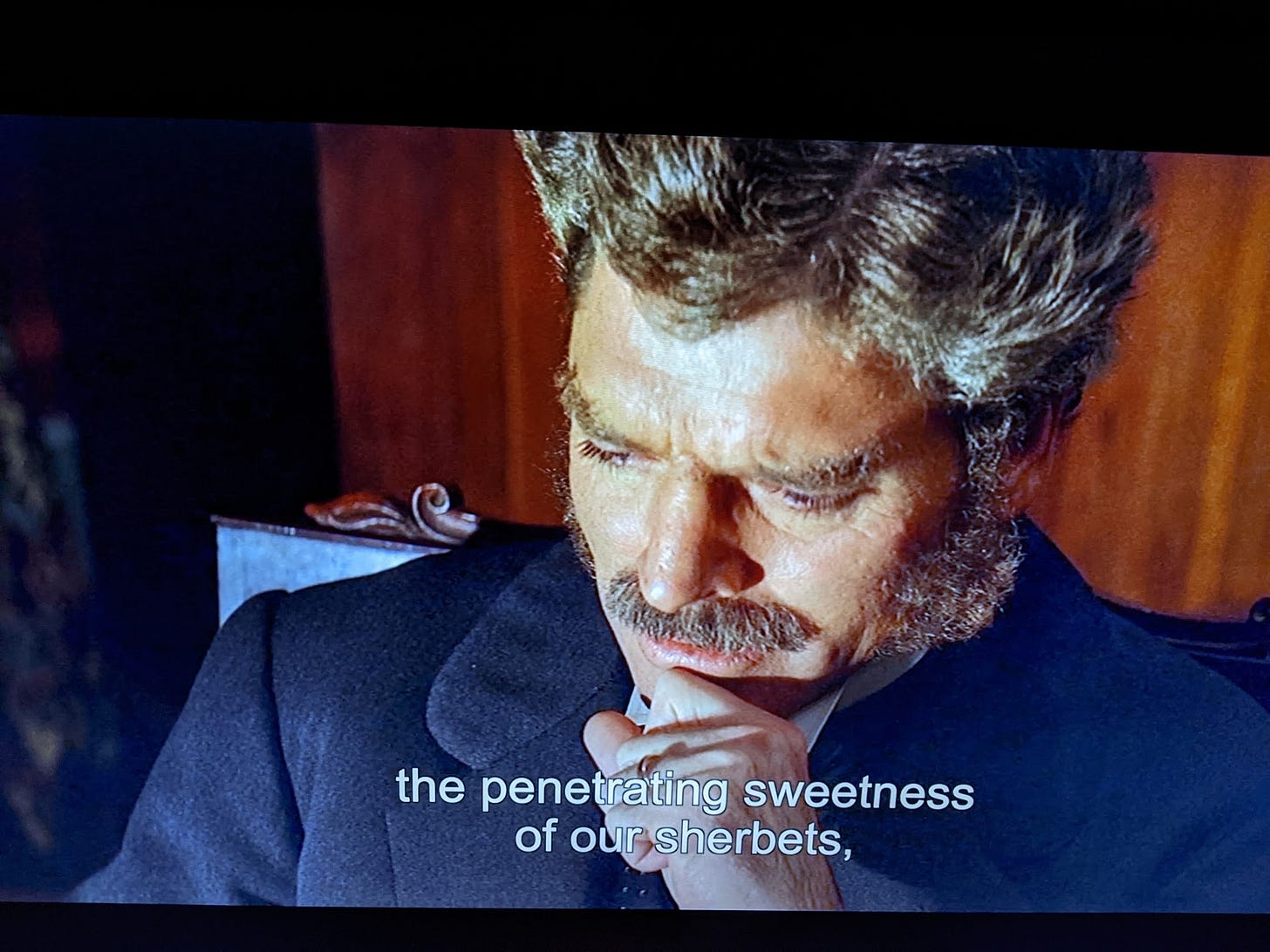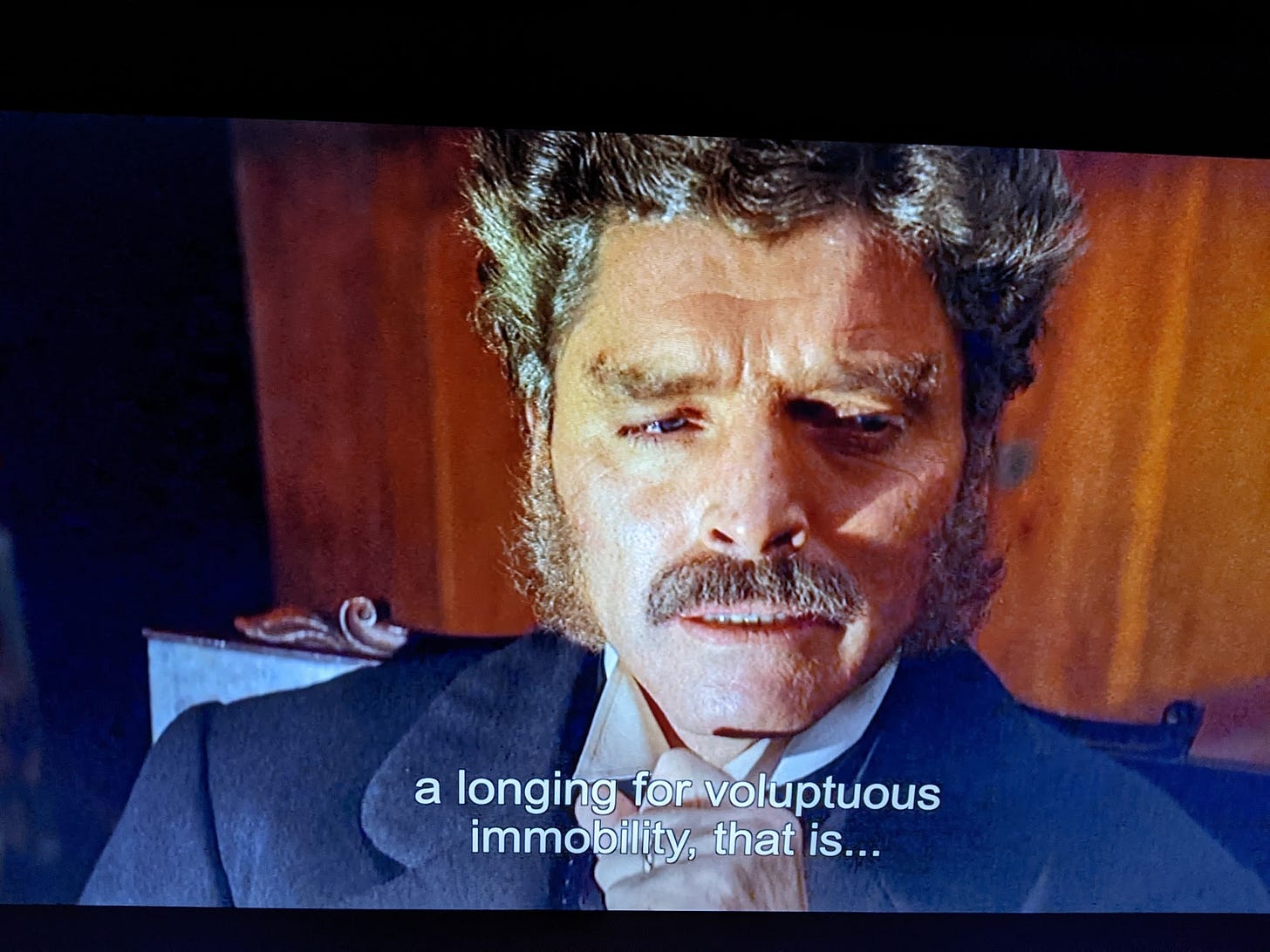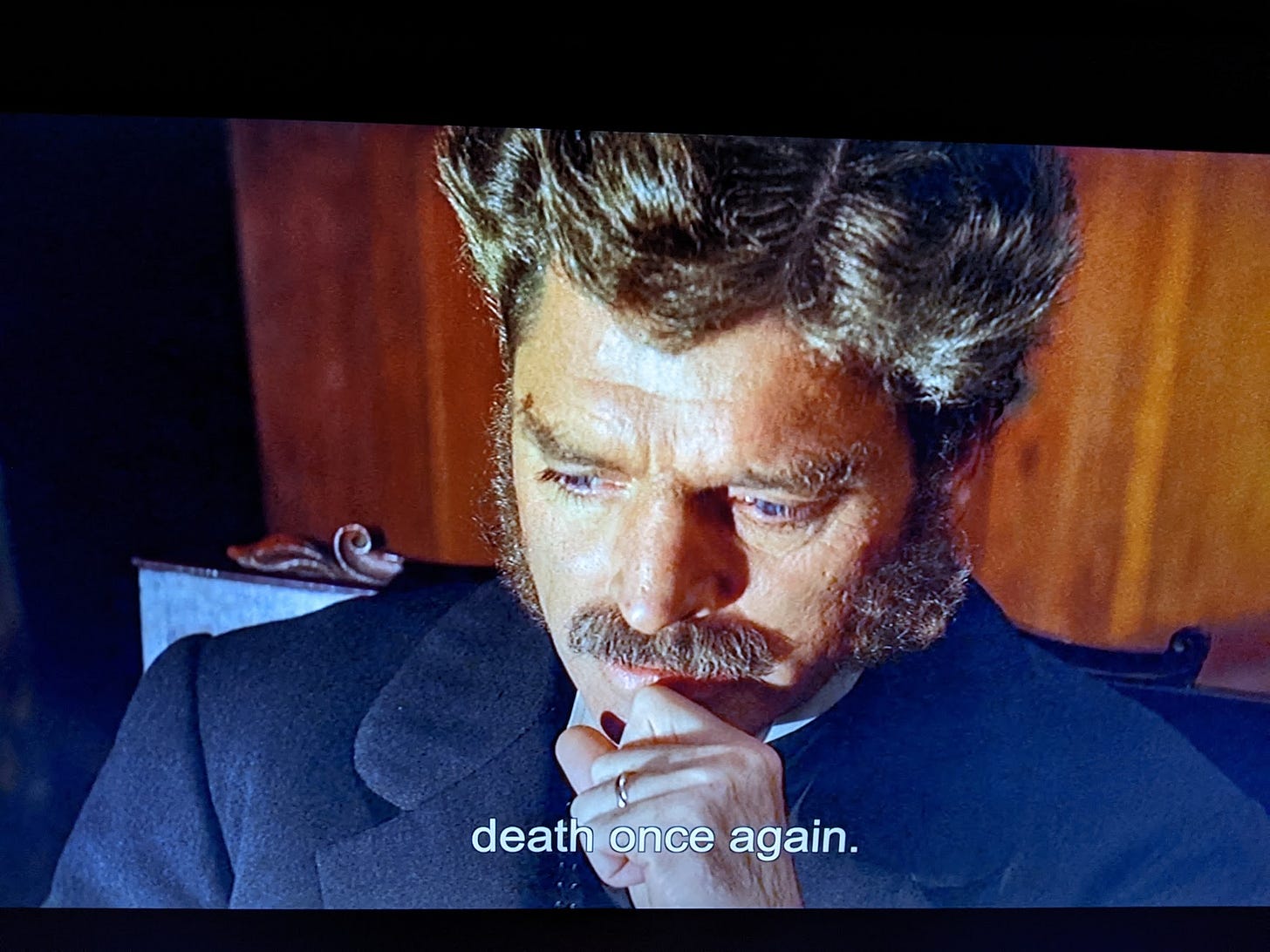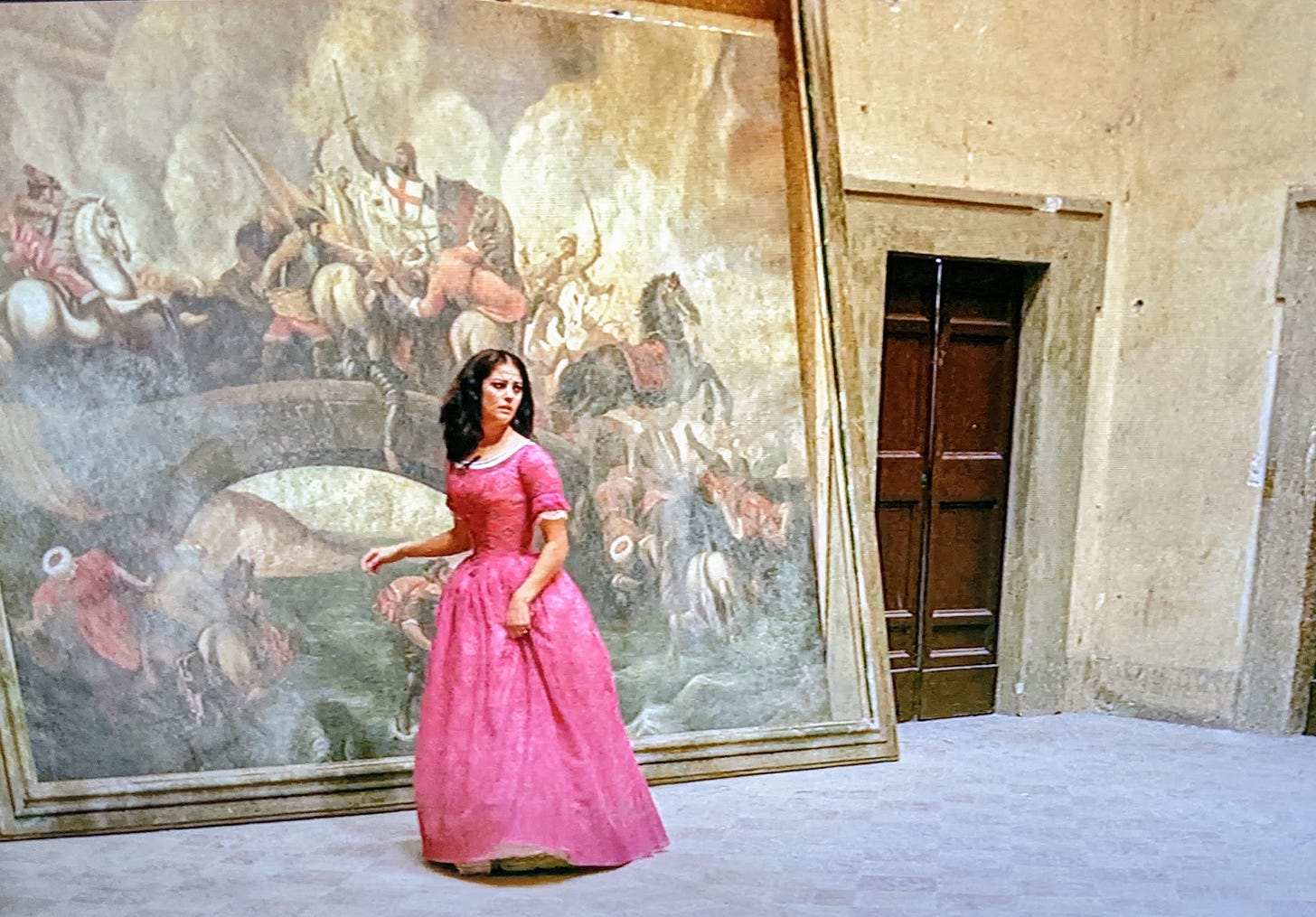The Leopard (Il Gattopardo), the 1963 Palme d’Or winning big-budget Visconti period drama, has a bit of casting at its core that might seem, at first, like a bad joke. The gattopardo of the title is Il Principe di Salina, a middle-aged Sicilian prince and patriarch whose family roots in Sicily go back centuries. The movie shows him grappling with the knowledge that he and his like will soon be irrelevant. Shot walking in dusty Italian streets and dancing in its gold-leaf ballrooms and hunting in its parched countryside, this emblem of the spirit of old Sicily is played by the incomparable… Burt Lancaster.
Apparently cast because MGM refused to finance the co-production without a bankable Hollywood star attached, such a decision at first glance might seem to doom The Leopard from the beginning. Apparently Visconti initially found the studio’s choice, made without his input and nothing like his vision for the role, deeply insulting. Furthermore, there’s no version of the film that’s not at least partially dubbed into another language, because Burt Lancaster’s scenes were shot in English and the other scenes were shot in Italian. In the Italian version, Lancaster’s performance is overdubbed by the Italian voice actor Corrado Gaipa; in the shorter English cut for the US market (which Visconti disowned), it’s the Italian and other European actors whose scenes are overdubbed while Lancaster’s English performance is preserved.
The video above is an artifact of the attempt to sell American audiences on this deeply ambivalent, reserved, and melancholy film. Watching this very misrepresentative trailer, it’s not hard to understand why this movie flopped in the USA. Here is Violence! it promises. And laughter! Soft, tender kisses and seething passions! It tries to make the audience believe that this is an Italian Gone with the Wind. It is, of course, nothing like Gone with the Wind — as this piece in Bright Lights Film Journal lays out, its closest American analogue is The Godfather, for which it served as a model and inspiration.
I watched the restored Italian “director’s cut” version, and it seems like a miracle that Burt Lancaster is even credible in the role. But he’s more than credible; even overdubbed and acting from behind bushy muttonchops, his performance is intelligent and subtle in the way we expect from “art films,” and charismatic in the way of Hollywood.
The prince is a man who belongs to a rapidly decaying old order, and we see him in moments where he seems astute about his situation, and moments when he seems out of touch. In the early scenes, after we watch brutal armed conflict between Garibaldi’s revolutionary Redshirts and the royalist army, including impromptu firing squads and lynch mobs and rapes, he and his family are preoccupied with getting to their summer palace in Donnafugata. The priest who travels with him explains to some of the local civilians that the nobility live in a different world than they do: the things that delight or upset aristocrats are things that most people would not care about, while the concerns of ordinary people might as well not exist for them at all.
And yet, we feel for the Prince, and he certainly is no Marie Antoinette. He knows that the world he occupies is a vanishing one, and is determined for his family not to end up on the wrong side of history. When his dashing and ambitious nephew Tancredi, the best hope for the family, throws his lot in with the revolutionaries, he is sanguine and even encouraging. He makes alliances with the rich bourgeois nationalist mayor, who under the old order would be beneath him, and supports him in his political ambitions. He sees the advantage of being friends with the winning team — and they are, unquestionably, winning — and makes his best attempt to look at the future of his country with clear eyes.
The new order is represented by that same rich mayor and his beautiful daughter, Angelica. The mayor, whose eyes go wide and greedy when he sees the Prince’s beautiful clothes and furnishings, demonstrates that often those who seek to topple old power structures don’t so much want to dismantle them as seize their privileges for themselves. It’s also a reminder that capitalism, as a force, was progressive in one respect: through generating wealth for the rising merchant and industrial classes, it laid waste to feudal monarchies and aristocracies with remarkable efficiency. By marrying his beautiful daughter — who is only one generation removed from the illiterate peasantry — to the Prince’s nephew, the mayor is able to buy for himself the perks of land and power (including, of course, a noble title of his own). Lands and titles are, in the end, just a form of capital.
Though there are many beautiful rooms and many beautiful vistas on view in The Leopard, filmed in lavish Vistavision and Technicolor, this is not the Italy of travel brochures. The buildings look dilapidated; we are told that some parts of the palace are infested with rats. And the noble family of Salina often looks desperately uncomfortable: their faces are often caked in dust from the roads, as are their clothes, which look much too heavy for the heat. They often mop their dripping faces with handkerchiefs, and their sweltering can be tough to watch: I sometimes wanted to shout at them, why don’t you take off your double-breasted coats? I assume they have their reasons, a code of decorum opaque to me.
We are reminded in ways both pointed and subtle that Sicily is a backwater. If you look closely at the paintings in those gilded rooms, you can see that they’re clearly second and third-rate with badly-proportioned faces and crude lines, impossible to mistake for the great Italian masters. We hear in hints (and then later, explicitly) that the town is a violent place. The nationalists are optimistic that the unification will fix Sicily: the new regime will bring in law and order and industry, they believe, and put an end to the stabbings and the laziness. When we watch Lancaster’s face in those moments, it’s apparent he believes that no such thing is possible. When he turns down the opportunity to hold a national political office, he explains himself by way of this speech:
The new rising order is embodied more optimistically in the figure of the mayor’s daughter, Angelica, decidedly not from noble blood and about to marry into the family. She’s pure abundant sensuality, and everything about her seems to overflow: her gowns, rather than stiff and heavy, are full of movement. Her hair always looks like it’s about to come undone. And her face, despite all the seductive pouting and lip-chewing, is entirely untroubled: perhaps alone in the film, her future is bright. She has nothing at all to worry about.
The Prince admires and clearly desires her, though he would never act on it. As he looks to her he is looking towards the future — seeing, perhaps, that there is some hope to it, something of beauty and idealism, but also something that by necessity can no longer include him. In the movie’s final sequence, at a grand ball, he dances with the young beauty, and we see what he must have been in his prime: elegant, commanding, full of warmth and vigor. And then, in a space of a few minutes we see him go from beautiful and panther-like to old, defeated and stooped. New York magazine, upon the 1983 rerelease, described it as the scene in which the Leopard “says farewell to life.”
This is a movie for contemplating the endings of things. Though no major character dies, death is never far away. We are watching people who were, will be, the last of their kind.



